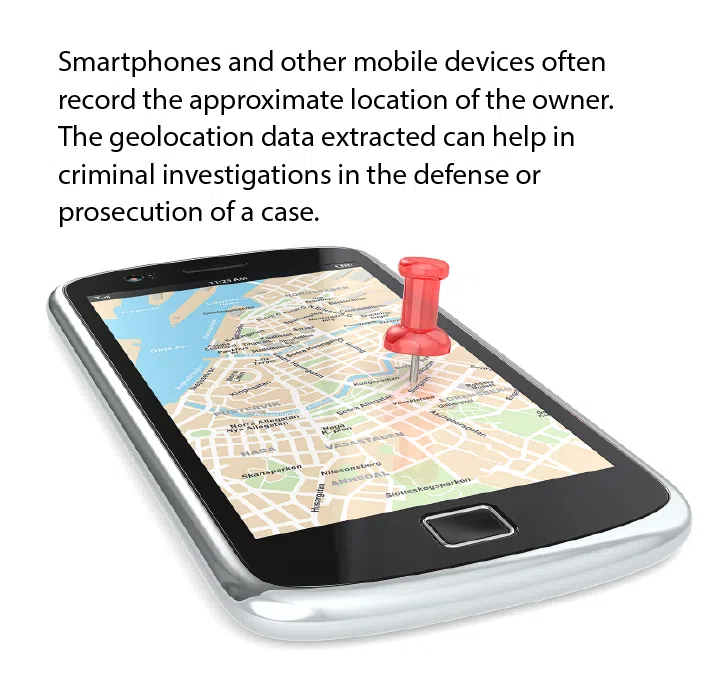Forensics in Criminal Law Matters
Our criminal law digital forensics services gather evidence from cell phones, computers, and cameras. Particularly important, we find location data, text messages, emails, voicemails, videos, and audio recordings. Even deleted data is often recoverable. Whether you’re defending the accused or are working with someone the victim of a crime; we have the capabilities you need to secure quality evidence that is fully admissible in court.

Common Cases We Gather Evidence For:
- Theft
- Assault
- Murder
- Fraud
Sample Case: A man breaks into a house and steals some cash and expensive jewelry. Either the prosecutor or defense attorney can retain us to collect and analyze the information on the cell phone. An analysis of cell phone evidence may establish:
- GPS information to show the phone was used at the crime scene or was located miles away when the crime occurred. Several applications on the phone gather this data, such as photos with geolocation enabled, or map driving apps.
- Text messages of the phone user indicated the defendant needed money, or even texted he was going out to get some cash to buy drugs.
- A lengthy phone call with the defendant’s mother, at the time the crime occurred, may show the person likely did not commit the crime.
Preserving Evidence to Use in Criminal Law Case
With all the time and effort that goes into eDiscovery, we ensure your evidence remains admissible in court. Our forensic software and collection practices are fully defensible. For example, we always maintain chain of custody and preserve the integrity of the evidence for your criminal law case.
Reduce Your eDiscovery Costs
Once we’ve identified all sources of evidence, we forensically extract the images, videos, text messages, call logs, notes, voicemail, and application data. You can imagine that quickly becomes an overwhelming amount of items to sort through. For your criminal case, our forensics expert will work with you to develop a Discovery Protocol and apply effective culling strategies. This way we reduce the amount of data and by extension, your eDiscovery costs.
For example, we focus the review on certain timeframes with begin and end-date filters, or to only those messages sent or received from certain people. Also, our forensic analyst will work with you to exclude other items, such as confidential information and privileged communications.
After reducing the amount of data, we produce evidence in one of two platforms. We will produce for you the relevant, non-privileged electronic evidence in either: In-House Document Review Software for electronic evidence, or in a convenient Desktop Evidence Report. The size of your case and the volume of data will indicate the platform that is best for you. Read more about either of those here.
Read more here: Criminal Law FAQs
